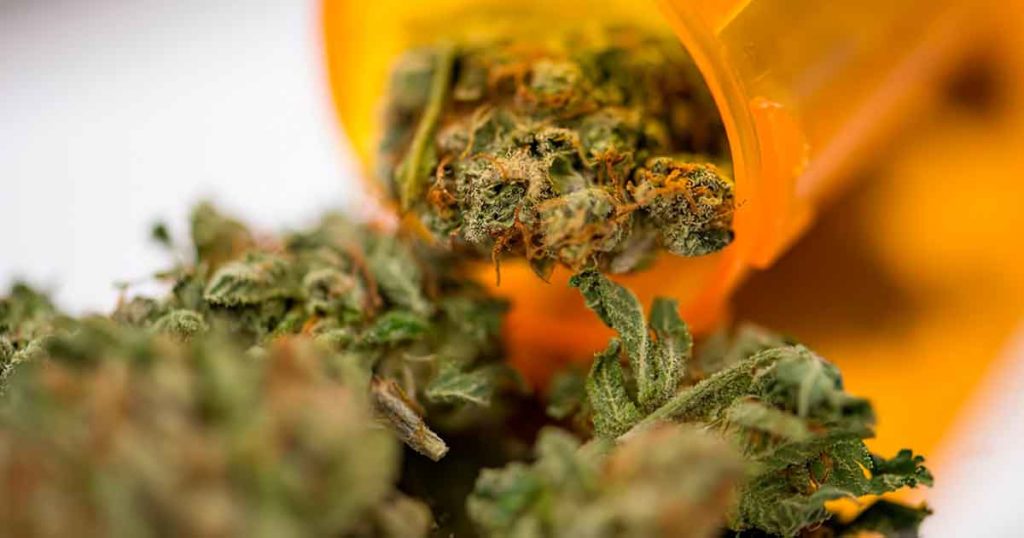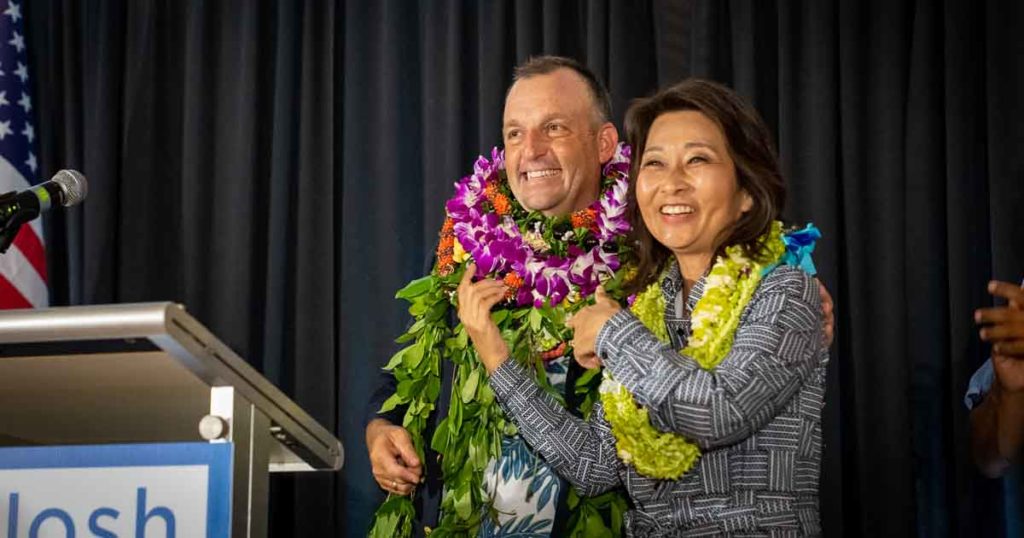Hawaii campaigners are optimistic about the possibilities of moving forward with marijuana legalization in the current legislative session, with an activist coalition holding a press conference alongside state lawmakers on Wednesday to lay out the route ahead for reform. There’s cause to be optimistic in the new year after voters elected a pro-legalization governor and lieutenant governor in November. Lawmakers are now ready to submit reform legislation after authorities completed legalization recommendations as part of a task committee.
Moving Forward
Representatives from major advocacy organizations, including the Marijuana Policy Project (MPP), the ACLU of Hawaii, and the Drug Policy Forum of Hawaii, said at a briefing on Wednesday that they’re gearing up for an active session, with hopes of also passing legislation to facilitate automatic record clearing and resentencing.
They were joined by Rep. Jeanné Kapela, who plans to introduce legalizing legislation and declared that “this year, we stand on the precipice of history.”
“We now have a roadmap for legalizing recreational cannabis in our islands,” she stated. “Legalizing cannabis is not just a matter of money. It is a matter of moralities.”
She added that our society’s most marginalized people would be first in line to participate in the cannabis industry we seek to grow. Agricultural and economic procedures would be centered on ecological and indigenous production methods, ensuring that cannabis operations benefit Hawaii’s people rather than multi-state corporations’ profits.
Kapela stated that her legislation will contain some of the recommendations made by a state cannabis task committee, which delivered a report on legalization policy considerations to the legislature ahead of the next session.
According to Kapela, our state’s unjustified commitment to incarceration disproportionately harms people of color and economically disadvantaged residents. By legalizing cannabis, we will create an industry that diversifies our economy, provides justice to those who have been wrongfully criminalized, and strengthens our agricultural heritage.
Legislators in the Aloha State have tried for numerous sessions to pass legalization, but while the change was approved in the Senate in 2021, it stalled after failing to pass a House committee by a key date.

A New Hope
Marijuana prohibition has caused immense harm to our communities, particularly communities of color, according to DeVaughn Ward, senior legislative counsel at MPP. Cannabis legalization is a chance to end the damage to our residents and the wasting of precious public safety resources.
According to Nikos Leverenz of the Drug Policy Forum of Hawaii, the upcoming legislation marks a significant chance for the legislature to heal the substantial damage that decades of cannabis prohibition have done to Native Hawaiian and under-resourced communities.
Hawaii’s cannabis policy should prioritize the interests of individuals harmed by the prolonged criminalization of cannabis and draconian drug laws. Simultaneously, an adequately regulated adult-use market will generate many high-quality jobs and business possibilities throughout the state, including those in cannabis tourism, artisan cannabis, and cannabis science.
Former Democratic governor Dave Ige has been a staunch opponent of legalization, citing his aversion to passing legislation that contradicts federal law as one of his reasons. This is despite the fact that Hawaii has a medical marijuana program that allows people to cultivate and sell cannabis in violation of federal law.
However, now that Governor Josh Green has been inaugurated, activists feel more confident. He stated in November that he would approve legislation legalizing cannabis for adults and that he already had ideas for how tax revenue from marijuana sales may be used.
That’s a positive change for supporters, who have spent years working with lawmakers to draft legislation to tax and regulate cannabis in the state, only to have the governor constantly express skepticism about the proposal.

The Sky’s Not The Limit
In 2020, Ige signed a measure that decriminalized possession of up to three grams of cannabis, making the violation punishable by a $130 fine with no risk of jail. Even so, he was hesitant, describing the decision as “extremely difficult” and adding he went “back and forth” on it. Meanwhile, a Hawaii Senate committee approved a bill last year that would automatically qualify those 65 and older for medicinal marijuana, regardless of whether they had a specified disease that would otherwise allow them. However, that legislation was not passed during the previous session.
In 2021, the state legislature passed a resolution requesting that the state seek an exemption from the Drug Enforcement Administration (DEA), allowing it to administer its medicinal cannabis program without federal intervention. In March 2021, the House passed a similar bill, which only applied to that House.
Separately, state lawmakers have sought to advance limited psychedelics reform legislation. A House committee authorized a Senate-passed resolution requesting that the state organize a psilocybin working group to investigate its psychedelic therapeutic potential, but it also stalled.
Hawaii is quite a unique state because of its geographical isolation from the rest of the United States; residents cannot simply drive across an imaginary line to the neighboring state and obtain cannabis. However, the momentum for marijuana legalization is evident in Hawaii. Right now, the state of Hawaii is one giant waiting room for an inane government that currently stands in the way of its citizens’ freedoms. However, there are benefits to other states and their medical cannabis programs. They are absolutely adding to the overall body of knowledge, experience, and study that America is conducting as a nation on how to effectively regulate cannabis and how it can be implemented into society most efficiently. But as far as providing immediate access to patients and consumers alike? If we’re being sincere here, the program in place right now simply doesn’t work.
In the end, we’re excited about the future of Hawaiian cannabis, even though we still have a long road ahead. We hope their new pro-cannabis governor will make Hawaii a national model for progressive cannabis policy. If that doesn’t happen, there’s always the possibility of ballot initiatives and legislation to try to make further progress at the state level. So stay tuned; this is likely just the beginning of legalization in Hawaii.
Enjoyed that first hit? Come chill with us every week at the Friday Sesh for a freshly packed bowl of the week’s best cannabis news!

















